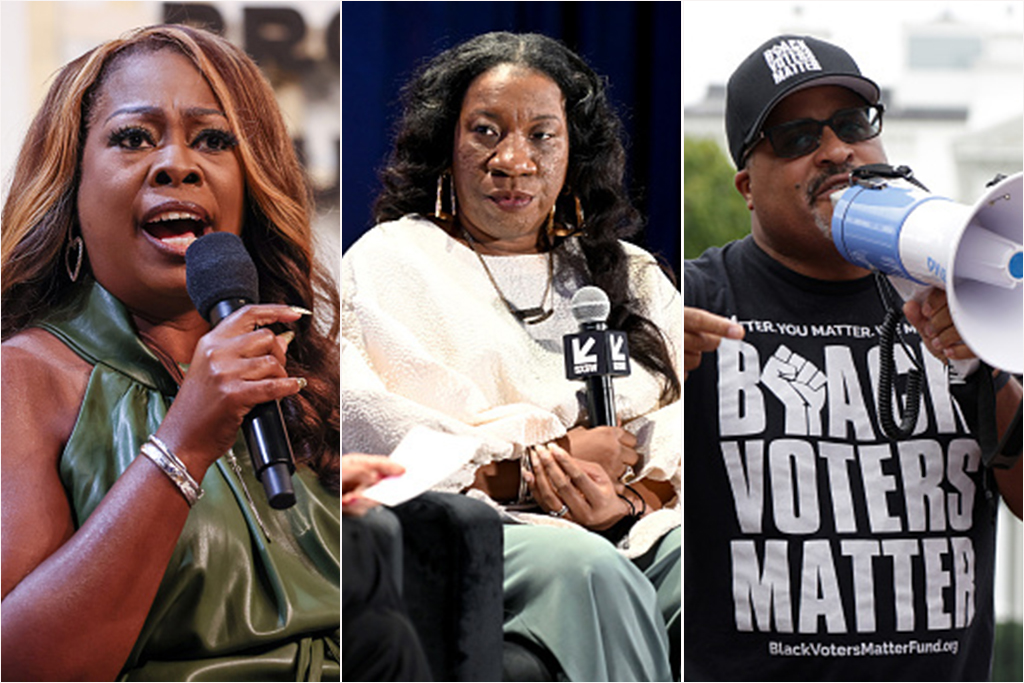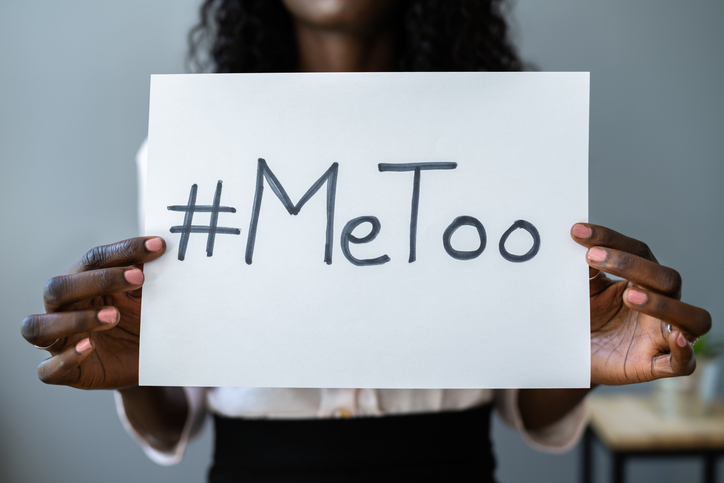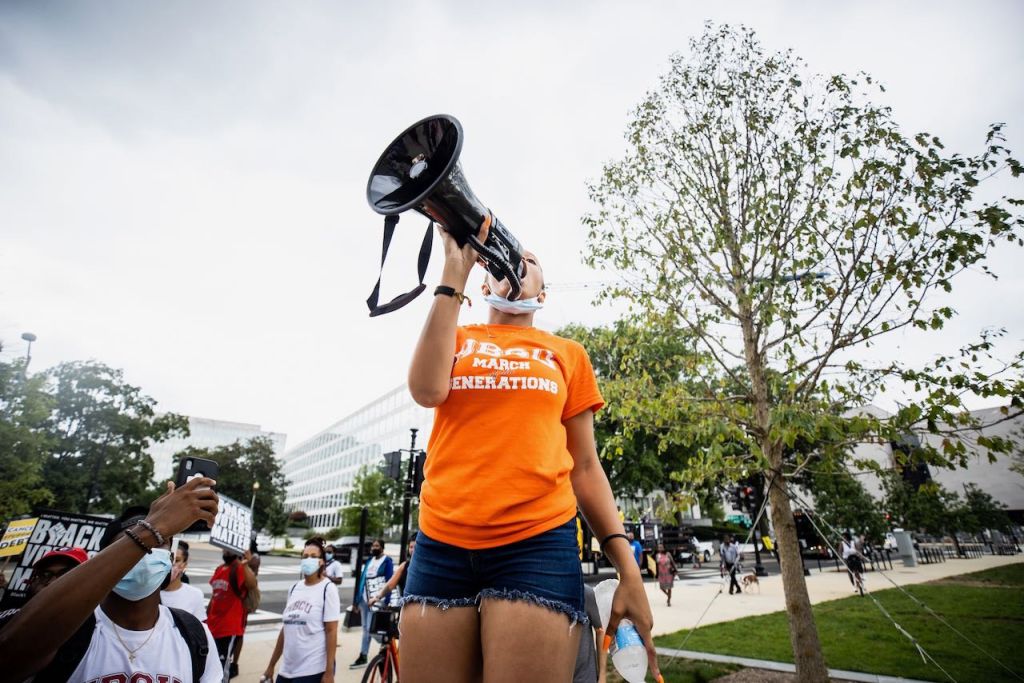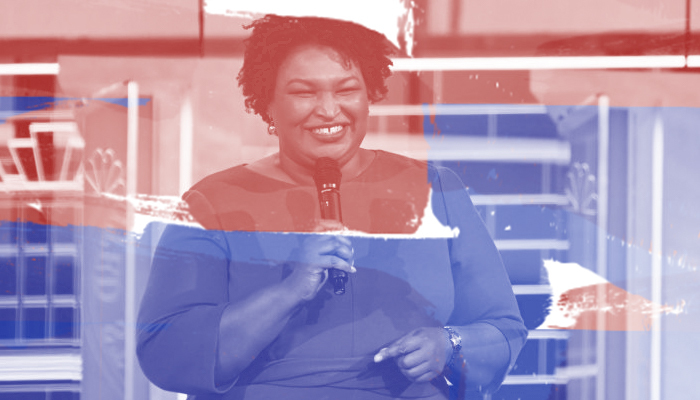Black Survivors: How 'me too,' Black Voters Matter Advocate
Unifying Movements: How me too. And Black Voters Matter Advocate For Black Survivors

From left: Black Voters Matter co-founder LaTosha Brown; me too. International founder Tarana Burke; and Black Voters Matter co-founder Cliff Albright. | Source: Getty Images / Getty
This month marks the sixth anniversary of the #MeToo hashtag and the rise of the modern-day survivor justice movement–a movement working to examine sexual violence beyond a reductive crime and punishment framing. In October 2017, when 12 million voices shook the world awake to the pervasive problem of sexual violence, #MeToo entered the global zeitgeist as a call out to a culture that enabled harm, brutality and danger through sexual and gender-based violence.
However, that global conversation has done little to expand our understanding of how the impact of sexual violence is amplified within intersections of race, gender, class, disability, sexual identity, immigration and economic status. For example, Black women face the second highest rates of sexual and gender-based violence in the U.S. and encounter incredible socio-economic challenges in their efforts to recover from this violence. In addition, Black women experiencing incarceration are subject to even higher rates of sexual violence–enabled by conditions like over-policing and higher rates of experiences within foster care.
When we look at issues like sexual and gender-based violence, reproductive justice, criminal justice and the issues currently shaping our political landscape, we see that Black women are politically organizing based on their experiences within these systems. However, we don’t see Black women bearing the fruits of their labor in the form of support, resources or safety.

Source: AndreyPopov / Getty
Black voters have the power to elect lawmakers who care about access to these resources, from expanding health insurance that can be critical to a sexual assault survivor and a person seeking reproductive care to expanding funding and support for the therapy and counseling too often out of reach for Black survivors. Within organizations like Black Voters Matter, we see that harnessing the collective voting power of the Black community is possible. They have illustrated a clear framework that calls upon civic engagement to amplify community power through a localized approach.
Furthermore, the framework employed by Black Voters Matter still proclaims, “the leadership, talent and commitment demonstrated by Black women, in particular, must receive recognition and, more importantly, investment in order to flourish and multiply.”
Still, it is important to note that while many issues disproportionately affect Black women, they alone cannot be responsible for changing our laws or the circumstances that rob them of their bodily freedom. It is unfortunately clear that even while experiencing higher rates of harm in these cases, Black women who hold a specific space in the U.S. political landscape do not receive a commensurate level of support. Black women are the Democratic Party’s most reliable community of voters. However, issues like sexual violence that impact Black women at some of the highest rates are not addressed meaningfully by the very party they support.
We have witnessed, time and time again, the ways in which Black women have harnessed collective community power to shape the world around them for the better. From shaping movements to elections, Black women are political change-makers. But that change must be reflected and seen through accountability.

Source: Dean Anthony ll / Dean Anthony ll
As a movement, me too. focuses on healing and action. This means healing is not only a form of action, but taking action can be healing. Channeling and harnessing power–community and political power–creates a rippling impact that empowers communities to develop collective and lasting change.
But, before we call upon Black women, survivors and Black women who are survivors to serve and enact change, we must ensure that they are served. It is critical that before expecting Black women and survivors to shoulder the burden of enacting change–community, political or otherwise–they are safe, resourced and have their needs heard and met.
At me too. International, the nonprofit organization founded by organizer and me too. Movement founder Tarana Burke, this is done through resources like the free online digital platform Survivor’s Sanctuary and its Healing Resource Library, which me too. International hopes can provide culturally relevant support. In addition, programs like the Address Confidentiality Program serve as a resource created to address safety for survivors by providing those who have survived domestic and sexual violence and reproductive care workers the ability to feel empowered to “safely exercise their right to vote since their actual address is not listed in public voter registration records.”
Creating resources and programs that support the work of Black women, survivors and their communities, already in motion, can enable liberative shifts and groundbreaking progress. Following the leadership of those most impacted by the issues we seek to organize around creates generative solutions and practices. But, depending on their leadership, not providing support in return can no longer be the norm.
The road ahead is no doubt long and arduous, but survivors have a voice and a vote, and we intend to use both.
Tarana Burke is the founder and Chief Vision Officer of me too.International. Cliff Albright is co-founder/executive director of Black Voters Matter. Both worked as community organizers during their years in Selma, Alabama.
SEE ALSO:
Op-Ed: Voter Purges Are Increasing Across The South. We Must Put A Stop To The Practice
Young Voters Overwhelmingly Approve Of VP Kamala Harris, Poll Finds. Here’s What That Means
















